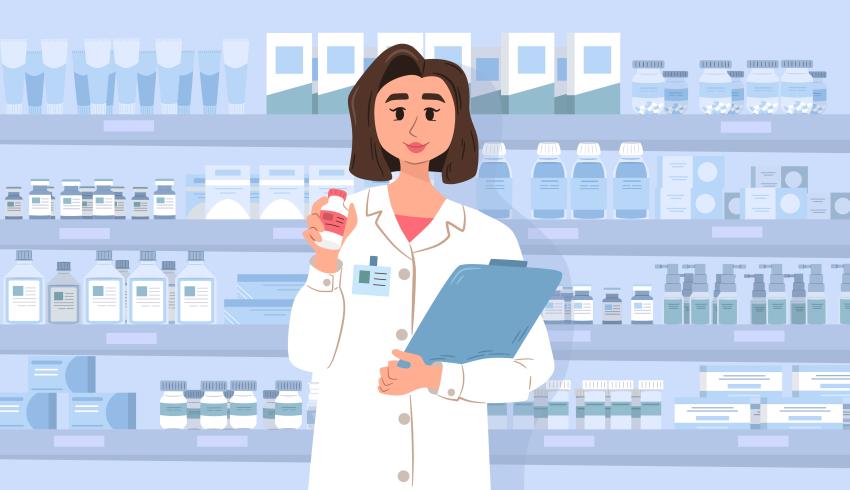The challenges and demands of pharmaceutical translation

Pharmaceutical translation is an extremely specialised and demanding field, requiring not only language proficiency but also a deep understanding of technical terms and the specific regulations of each country. The slightest error could have disastrous consequences. Let us take a closer look at the challenges and particularities of this field.
Índice de contenidos
Index of contents
Index du contenu
Inhaltsverzeichnis
Indice dei contenuti
Variety of documents to translate
The types of documents requiring pharmaceutical translation are numerous and varied. Among them we find:
- Pharmacovigilance documents: protocols, analyses and test results.
- Registration procedures: dossiers for marketing authorisations (MA), mutual recognition procedures, etc.
- Documents related to medicines: leaflets, labelling, packaging, etc.
- Scientific publications: such as studies, patents or reports.
- Advertising documents: marketing and advertising material aimed at healthcare professionals and the general public.
Each type of document presents its own specificities and requirements, making the translator's task particularly complex.
Importance of precision
Pharmaceutical translation demands infallible precision. A simple error in translating a contraindication, a dosage or instructions for use can have severe consequences for patients' health, as well as compromise the legal liability of pharmaceutical companies. Therefore, a translation must be meticulously and rigorously carried out. The same applies to medical translation; both fields require utmost precision to avoid errors that could be fatal, for both the user and the company.
Compliance with international standards
Translations must comply with the requirements of local and international regulatory authorities, such as the European Medicines Agency (EMA). Compliance with standards and regulations is crucial. This includes monitoring medical innovations and new therapeutic solutions to ensure that translations are always up-to-date and in compliance with the latest breakthroughs.
Specialised terminology
Translators must possess an exceptional command of medical and scientific terminology. They must be able to understand and translate very specific terms, often absent in general dictionaries, as well as be familiar with standards and regulations. This ensures that translated documents are accurate and meet legal requirements, essential aspects for making a product available on the market.
Confidentiality
In the pharmaceutical sector, confidentiality is paramount. Laboratories handle sensitive and confidential data concerning especially new therapies, clinical trial results and patents. Unauthorised disclosure of this information can weaken companies' competitiveness and compromise patient safety. Therefore, the protection of sensitive information is of utmost importance.
Professional translation agencies guarantee absolute confidentiality in translation processes by limiting data access to those involved in the project. They generally sign confidentiality agreements to ensure that there are no information leaks. These agreements, often called NDAs (Non-Disclosure Agreements), legally oblige the parties to maintain the confidentiality of sensitive information, using it only for the purposes specified within the project framework.
The profile of pharmaceutical translators
In summary, a good translator specialising in pharmaceutical translation must have profound knowledge of technical and scientific terminology. Furthermore, experience in the fields of pharmacy, medicine or medical research is highly valued. They must also be familiar with current standards and regulations as well as demonstrate great precision and attention to detail, which are essential to avoid potentially serious errors. Translation companies work with native and specialised professional translators, thus limiting the risk of errors and ensuring the highest quality translation services.
Conclusion
The challenges of pharmaceutical translation are varied and complex. A poor translation can entail enormous risks, including incorrect information in leaflets and non-compliance with standards. These errors lead to delays or rejections in marketing authorisations, which can be disastrous for the company. In a worst-case scenario, the credibility of laboratories will be undermined, even leading to legal issues.
Pharmaceutical translation goes beyond simple language barriers, they directly affect the safety, legality and reputation of the pharmaceutical industry. Precision, rigour and confidentiality are the foundations of a successful pharmaceutical translation, ensuring patient safety and product compliance with international standards.
Other articles you may be interested in:

Blog writer and Community Manager interested in multiculturality and linguistic diversity. From her native Venezuela, she has travelled and lived for many years in France, Germany, Cameroon and Spain, passing on her passion for writing and her intercultural experiences.



Add new comment